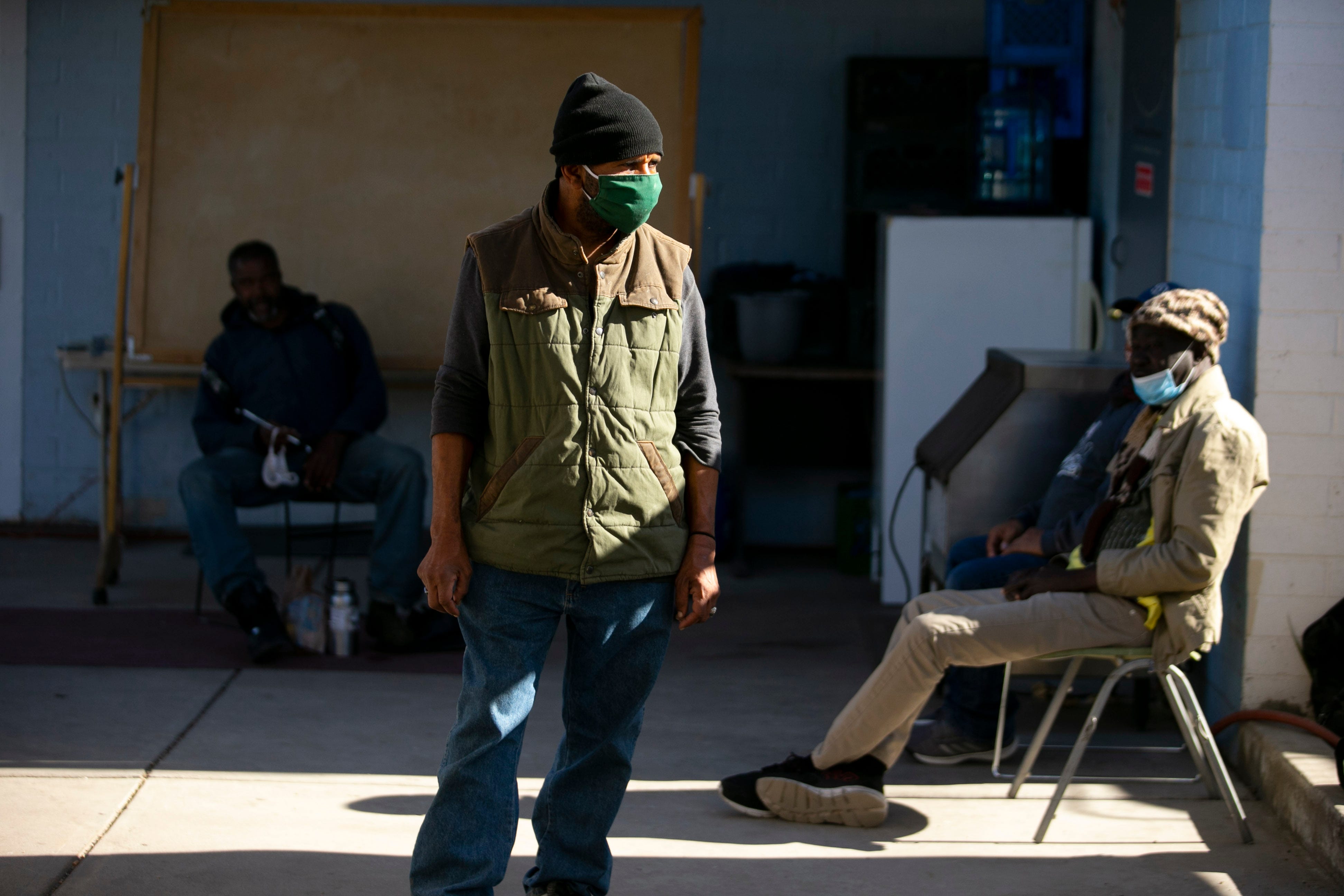
A growing number of metro Phoenix's older residents are living out their final years without a home — and ultimately dying on the streets where they've been sleeping.
Almost 40% of the 527 people experiencing homelessness who died in metro Phoenix during the first nine months of 2020 were 55 or older, according to an Arizona Republic analysis of Maricopa County medical examiner's data.
Forty-five of those who died were between the ages of 65 and 75. Fifteen people were 75 to 85 years old. An 88-year-old man and a 95-year-old woman also were among the deceased.
The fatalities are a consequence of a troubling spike in senior homelessness in metro Phoenix.
Justa Center, a resource center for people experiencing homelessness who are 55 or older, has seen a 30% increase in people seeking service each year for the past several years, according to Executive Director Wendy Johnson.
On any given night, people 55 or older take up about 40% of the 450 emergency shelter beds at Central Arizona Shelter Services, the largest shelter in Arizona, according to CEO Lisa Glow.
The increase in senior homelessness is spurred by a combination of forces.
A portion of the population has chronic mental health, physical health or addiction issues or a combination of the three, has experienced homelessness since they were younger and has aged into the senior category while living on the streets.
There's also a newer — and growing — phenomenon of people over the age of 55 becoming homeless for the first time because they've been priced out of housing and either can't find employment or have retired and rely on a Social Security benefit that is not enough to keep up with metro Phoenix's rising housing costs.
Older people are more susceptible to excessive heat, more likely to have serious health issues and less likely to survive the conditions on the street.
"We've had more of our seniors die this year than ever before," Johnson said.
And it's more than just the 202 deaths labeled as homeless deaths by the Maricopa County medical examiner, Johnson said.
Justa Center tracks the seniors in its program who get housing after experiencing homelessness, so it can provide food and needed essentials like toothpaste and shampoo.
Johnson said she's seen many seniors get housing this year only to die a few months later because of the health conditions they racked up while experiencing homelessness. Housing came too late for them, she said.
"We comfort ourselves by saying, 'At least they died in housing,'" Johnson said. "But, no. They could have had a much richer, longer life with housing."
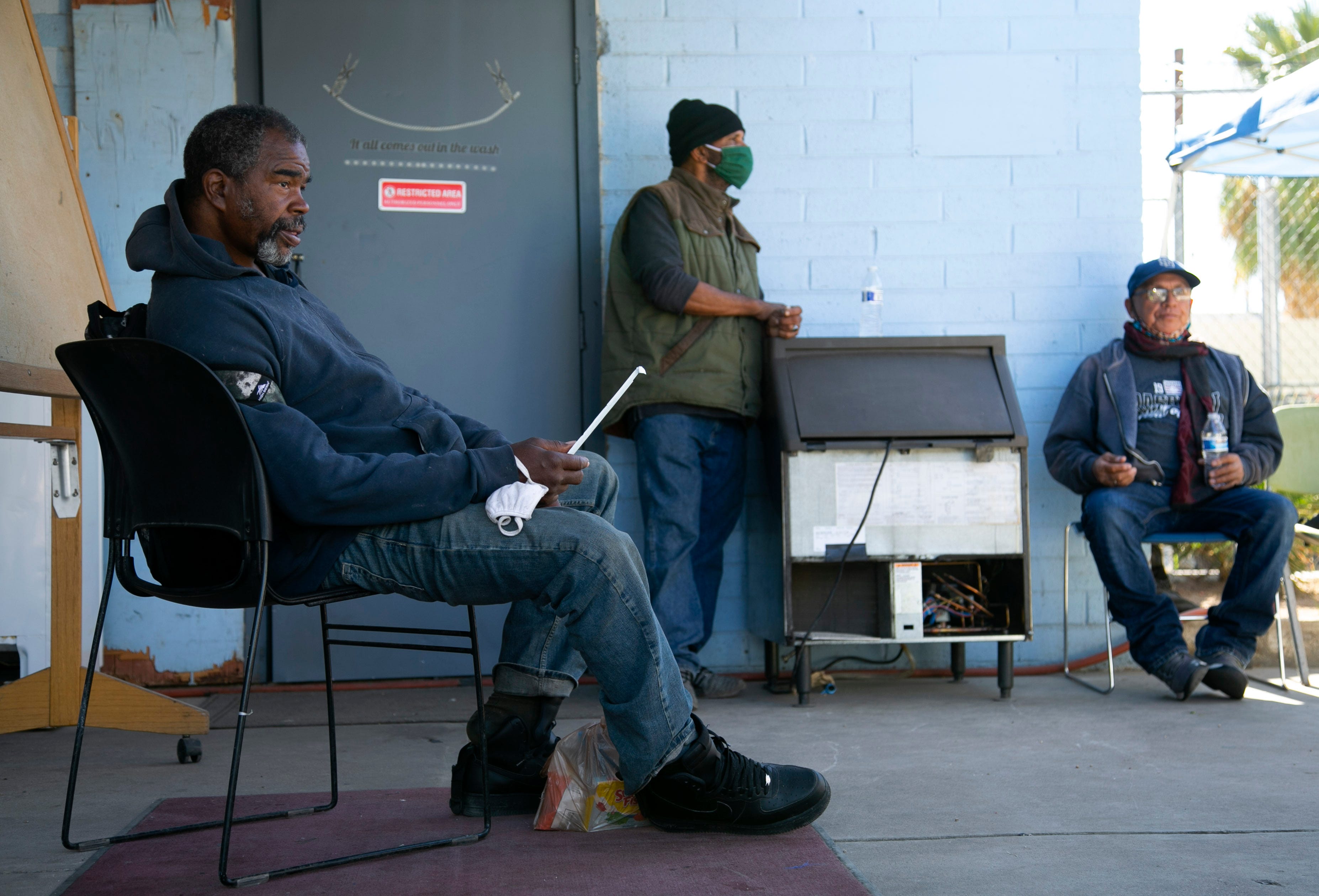
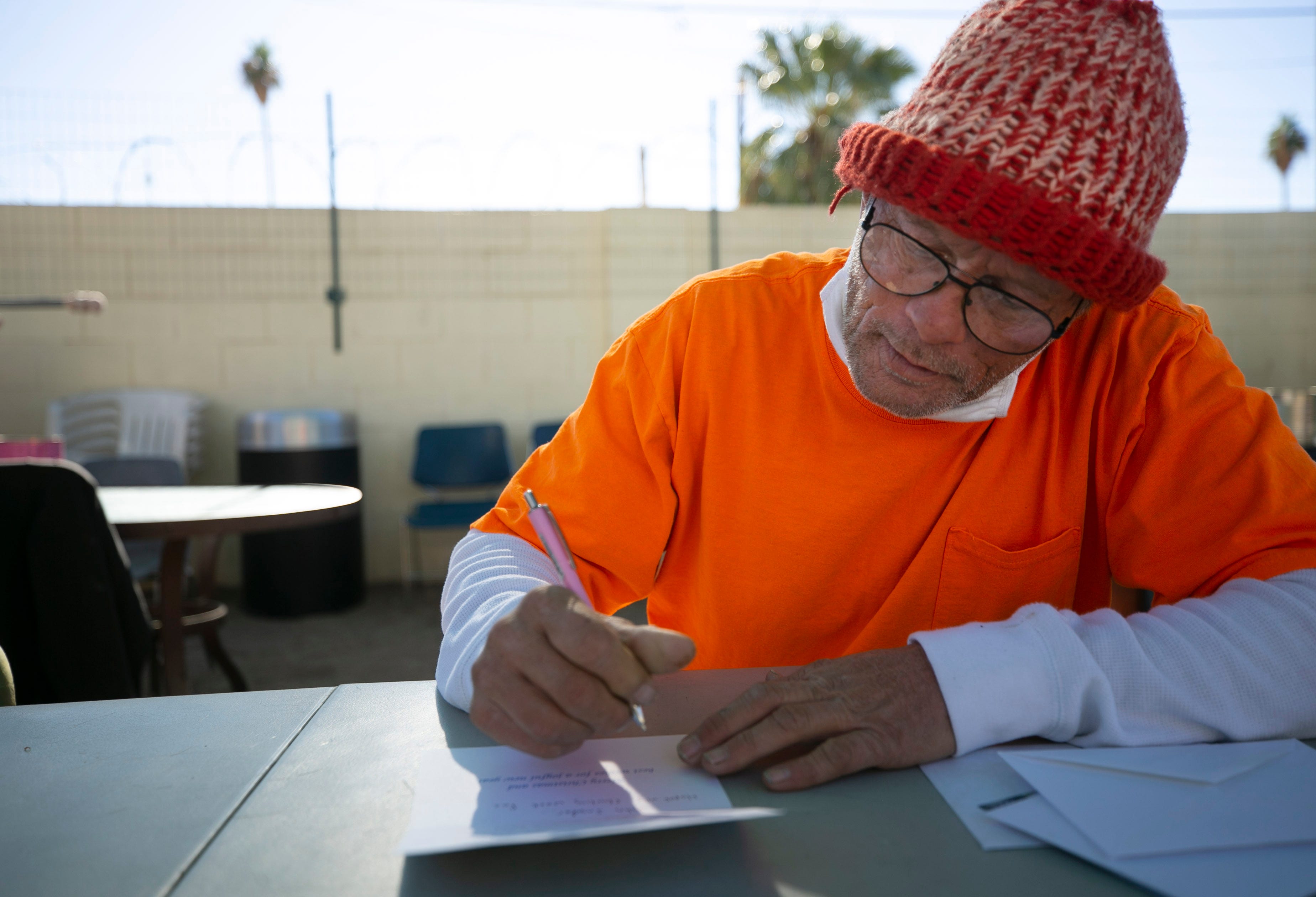

'They don't have enough money to live on'
Experts say that seniors will continue to face homelessness for the next several decades because of rising housing costs and an unsustainable reliance on Social Security benefits.
Retirees who paid into the Social Security system through payroll taxes while they were working qualify for a monthly benefit from the federal government that is designed to supplement retirement income and keep poverty at bay.
Though the Social Security Administration cautions on its website that the monthly retirement benefit was "never meant to be the only source of income for people when they retire," many workers rely on it as such.
About 20% of retired married couples and 45% of retired single people rely on Social Security for 90% or more of their income, according to the Social Security Administration.
The average monthly Social Security benefit for retired Americans is $1,514, according to the Social Security Administration. But because the monthly benefit is determined by how much an employee made while they were working, many low-wage workers receive a significantly lower monthly benefit.
Rental prices have soared in metro Phoenix in the past few years. The current average rent for a one-bedroom apartment is about $1,250, according to national apartment research firm Yardi Matrix — a price that's out of reach for seniors solely dependent on Social Security.
"Seniors continue to come into the system because they don't have enough money to live on," Glow said.
Glow said she's concerned this trend will continue at a quicker pace after the New Year when the U.S. Centers for Disease Control and Prevention eviction moratorium expires and seniors who failed to pay their rent during the COVID-19 pandemic can be kicked out of their homes.
Most retirees right now are part of the Boomer generation — a generation thought to be more financially stable than the ones succeeding it.
If Boomers are struggling, Generation X, saddled with housing debt caused by the Great Recession, and the Millennial generation, saddled with student loan debt, likely will have an even more difficult time affording retirement, Johnson said.
"Conservatively, we're looking at 100 years of elders who won't be able to afford to live," Johnson said.
When seniors become homeless, providers have limited options to help get them back into housing, Johnson said.
The federal government funds a program for people experiencing homelessness called "Rapid Re-housing" that covers a person's move-in costs and rent for about six months and then requires the person to take over the rent payments.
While that can be effective for someone who recently lost a job and only needs temporary assistance, seniors who can't find work or are unable to work because of disability won't be able to take over the rent after six months. It ends up creating a "revolving door to homelessness," Johnson said.
"I am livid that this is our choice," Johnson said. "We need a better spectrum (of choices)."
The "revolving door" leaves many seniors on the streets for longer than their bodies can handle, ultimately bringing about their premature deaths. This year likely saw a record number of senior homeless deaths.
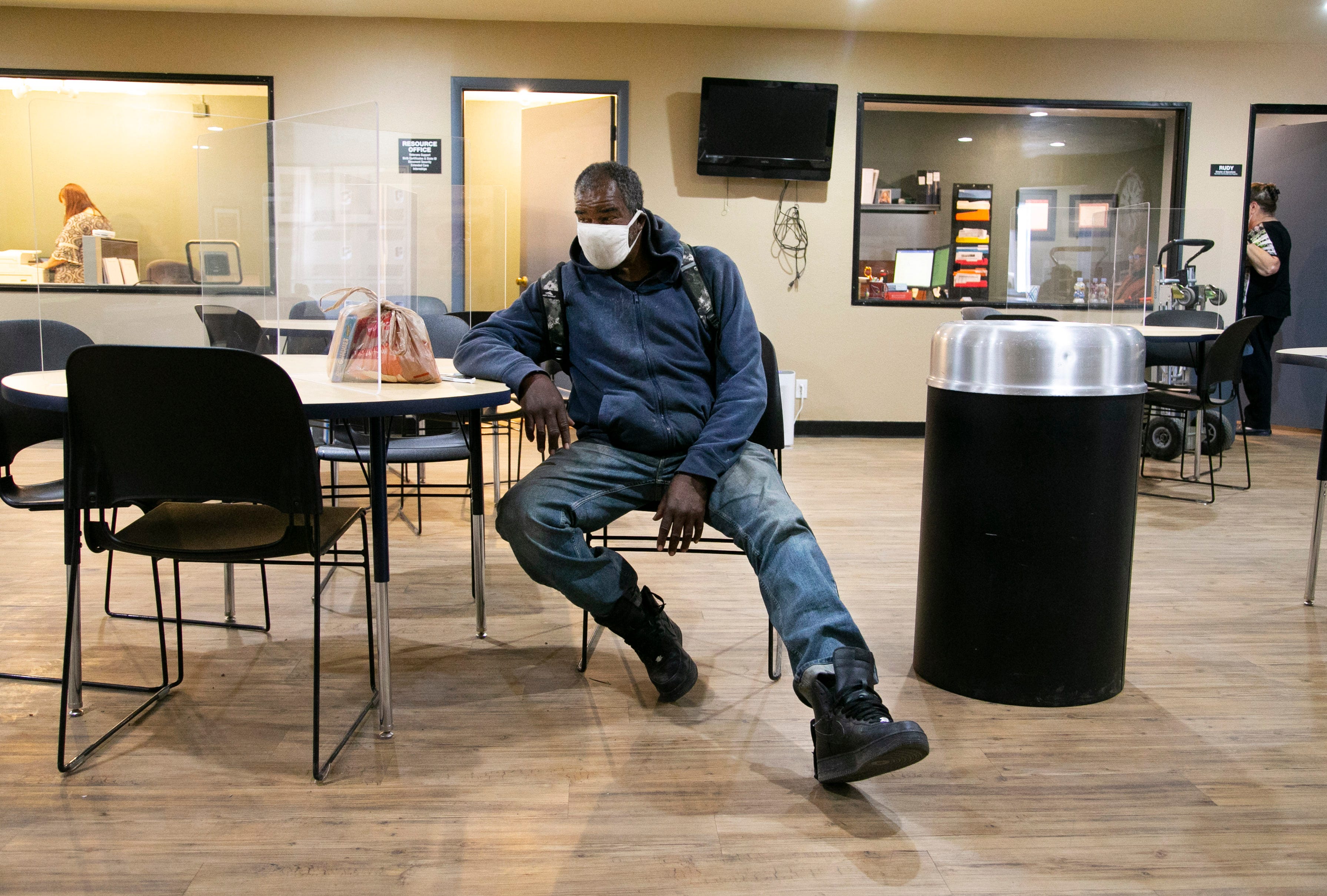

Of the 202 senior homeless deaths in the first nine months of 2020, the Maricopa County Medical Examiner's Office found:
- Almost 90 were caused at least in part by treatable diseases or illnesses such as diabetes, heart disease, pneumonia or malnutrition. Another 31 were not medical examiner cases, meaning theirs was deemed a "natural" death by a doctor who was treating them before death.
- About 80 were were accidental deaths involving drugs or alcohol.
- Heat was a primary or contributing cause of death in 59 deaths. The medical examiner listed another four deaths as suspected heat deaths, but the final reports were not yet ready for release.
- One person died of frostbite, and another died of hypothermia.
Living outside in extreme weather takes a physical toll on all bodies and a mental toll on all minds. But older people are even more likely to fall victim to the dangerous conditions, Johnson said.
"(It's) normal aging, then you add exposure. You add hard surfaces that they're sleeping on. Bone issues. Heat issues. Victimization," she said.
Johnson said there hasn't been a day in the past six months that one of the seniors at Justa Center hasn't been robbed, beat up or raped on the streets.
"Because they're older, they're seen as easy," Johnson said.
And if they have a Social Security check, they have more to steal.
'A WAKE-UP CALL': 500 homeless people died in metro Phoenix in first 9 months of 2020
Separate senior shelter
Glow has been pushing for a separate shelter for seniors experiencing homelessness that can better serve the needs of older people, get them away from the dangerous street conditions faster and protect them from the elements and people who take advantage of them.
She got the chance to pilot the idea with COVID-19 relief funding provided by Phoenix earlier this year.
(It's) normal aging, then you add exposure. You add hard surfaces that they're sleeping on. Bone issues. Heat issues. Victimization.
CASS rented 65 rooms in a north Phoenix hotel and began placing the most vulnerable seniors in private rooms with their own bathrooms.
Caseworkers and medical professionals check in with residents weekly. CASS staff checks in daily and delivers meals.
As of December, the hotel program, dubbed "Project Haven," had served 152 people. Almost 70% of them have left the hotel for permanent housing, Glow said.
CASS recently expanded the program with 20 additional rooms. The program is funded through July 2021.
Robert Brassuel, 62, was one of the first people to land at Project Haven. He fled Mississippi and headed for the West Coast after a bad divorce about two years ago. He split his time between Phoenix and Las Vegas, depending on homeless shelters for a place to sleep.
That's been a disaster, Brassuel said.
In the shelters, he was around mostly younger people who were involved in drugs, alcohol and violence.
"Here, I feel perfectly safe and I feel like I have another chance to try to get my life back together," he said.
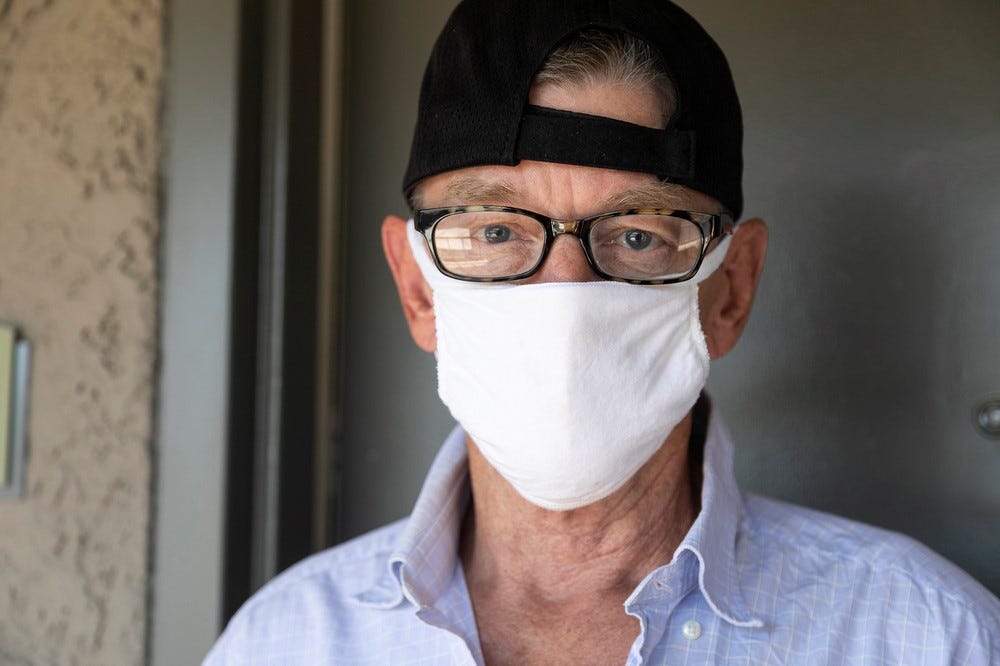
Staying at Project Haven allowed him the time and space to weigh his permanent housing options — something he'd all but given up on before coming to the hotel.
He said he hopes more people have the opportunity to experience the security and personal attention the hotel program has afforded him.
"My hopes and dreams have all changed. The direction of my life has actually changed," Brassuel said.
Glow said CASS is working through the state Legislature and the Arizona Department of Housing to try to find funding to move Project Haven to a permanent location where the organization can continue to care for homeless seniors indefinitely.

'I'm not really scared of dying'
Salvador Muñoz sat on the Justa Center patio in early December, an oversize gray hoodie hugging his small frame. A turquoise face mask adorned with cacti — a gift from one of his daughters — covered most of his face, but his tired eyes peeked out from under his black baseball cap.
Muñoz has been experiencing homelessness for more than a decade, but just existing on the streets is harder than it used to be, he said. Right now, he's living out of a tent in a parking lot near the Human Services Campus south of downtown Phoenix.
You get to that age when you're homeless and you don't have anything to show for it. And it gets depressing, you know.
"I guess you're like a car. The more miles you put on it, the more worn out it gets," he said.
Muñoz said he was hospitalized for heatstroke three or four times during the past few summers. Since then, his body can't handle the heat or the cold as well. And it was starting to get very cold at night, he said.
Muñoz said he's seen people his age and even younger die on the streets while he's been experiencing homelessness. He knows he may eventually share their fate, but it doesn't worry him.
"I guess I'm not really scared of dying. If it happens, it happens," Muñoz said.
Muñoz struggles with depression and said he's tried to take his own life multiple times. Each time he "snapped out of it," he said.
"I guess it wasn't meant to be. But when the time comes, it's time. You get to that age when you're homeless and you don't have anything to show for it. And it gets depressing, you know," Muñoz said.
How to help people experiencing homelessness in metro Phoenix
There were at least 7,419 people experiencing homelessness in metro Phoenix at the start of 2020 when providers conducted the annual point-in-time count in Maricopa County.
That number likely has increased over the course of the year as COVID-19-related job loss has forced even more Arizonans into homelessness.
More than half of the people experiencing homelessness in the county are living "unsheltered" — sleeping on the streets, in desert washes, vehicles or another place not meant for habitation.
People experiencing this type of homelessness have significant needs, from food and water to blankets and clothing.
If you're interested in helping, dozens of nonprofits in metro Phoenix are accepting donations of goods and money to help care for our community's most vulnerable.
Coverage of housing insecurity on azcentral.com and in The Arizona Republic is supported by a grant from the Arizona Community Foundation.
Reach the reporter at jessica.boehm@gannett.com or 480-694-1823. Follow her on Twitter @jboehm_NEWS.
